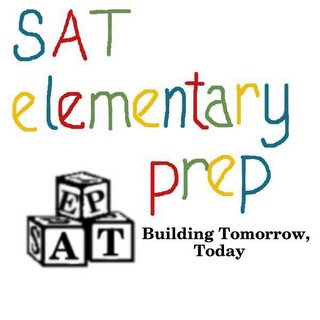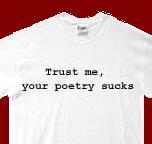This idea is closely related to the concept behind my frustrations from an earlier post, The Art of the Resume. Langer has identified what I believe to be a major flaw in our current culture's approach to education, and other aspects of our culture as well.
Yoda: "Always on the future his mind is, never on the here and now."
As Langer points out, from very early on the main end of schooling was to advance to something else - the next grade, good college, good job, etc. Case in point: high school "SAT" courses which focus solely on improving student's test-taking skills. What a sickening concept, teaching kids how to amplify their results based on what are essentially tips and tricks. Back in the good ol' days they used to have classes which improved SAT scores, too. They were called math and english and history.
 The main point is this; such a heavy focus on the ends causes a disregard for the means. In this case, the means is education - the gaining of knowledge about the world, about one's self, and about God. "Pish-posh," says our culture, education is merely a conveyance. In other cultures the journey is as or more important than the destination. I believe, as I imagine Langer does as well, that our culture has fallen out of sync with a healthy balance between the two. I feel that a better understanding and approach to engaging students in the process of education would, ironically, be a dramatic benefit to the same goal that the current tradition holds.
The main point is this; such a heavy focus on the ends causes a disregard for the means. In this case, the means is education - the gaining of knowledge about the world, about one's self, and about God. "Pish-posh," says our culture, education is merely a conveyance. In other cultures the journey is as or more important than the destination. I believe, as I imagine Langer does as well, that our culture has fallen out of sync with a healthy balance between the two. I feel that a better understanding and approach to engaging students in the process of education would, ironically, be a dramatic benefit to the same goal that the current tradition holds.There are other negative aspects to outcome based education as well. When children take up a new activity with an outcome-based orientation there exists a "predominate anxious preoccupation with failure." The emphasis is on "Can I or can't I?" as opposed to "How do I?" A result of this mindset is an inordinately mindless
 fear of failure. I can't tell you how many times I've witnessed the utter trauma that simple math test has caused in so many of my peers' lives. I mean I have seen individuals near the point of mental breakdown over an insufficient grade on one test (or more commonly over the fear of a pending grade being insufficient). One such example occured very recently following a Cultural Anthropology midterm. About a week after the test before a Friday class I over heard a girl say that if she didn't get her test results back that day it would ruin her whole weekend. I sincerely hoped for her sake that she was being facetious, but I suspect that there was some truth in her comment. Can you see how unhealthy such a preeminant focus on failure is? This girl almost certainly could not care less whether she actually learned about other cultures, all she was concerned with was the grade. In my own academic career there have been many times where my sole motivation for performing a task was the sheer terror of getting a bad grade.
fear of failure. I can't tell you how many times I've witnessed the utter trauma that simple math test has caused in so many of my peers' lives. I mean I have seen individuals near the point of mental breakdown over an insufficient grade on one test (or more commonly over the fear of a pending grade being insufficient). One such example occured very recently following a Cultural Anthropology midterm. About a week after the test before a Friday class I over heard a girl say that if she didn't get her test results back that day it would ruin her whole weekend. I sincerely hoped for her sake that she was being facetious, but I suspect that there was some truth in her comment. Can you see how unhealthy such a preeminant focus on failure is? This girl almost certainly could not care less whether she actually learned about other cultures, all she was concerned with was the grade. In my own academic career there have been many times where my sole motivation for performing a task was the sheer terror of getting a bad grade.I was reminded by this section of the text of an interview I read. The actor Owen Wilson was being interviewed by a magazine and one question/answer stood out to me even before I read the Langer text:
MAGAZINE: Have you gotten better at dealing with criticism?
WILSON: Now if a movie goes south it might not capsize me like it used to. But I still have a terrible fear of failure. My father gave me a [Samuel] Beckett quote, "Try again. Fail again. Fail better." I find that really liberating.
I believe that outcome based education is a disfunctional tradition. A healthier system would include more emphasis and value placed on learning and education as more than just a vehicle. The key words of Beckett's quote are fail better. There are no failures, only ineffective solutions. The only real failures occur when one becomes so hung up on a "failure" that they fail to use the experience as an opportunity for betterment. So the "Culture of Failure" is not a failure, but simply an ineffective solution for achieving said outcomes. The key is thoughtful consideration of what is going on and how to deal with it.







